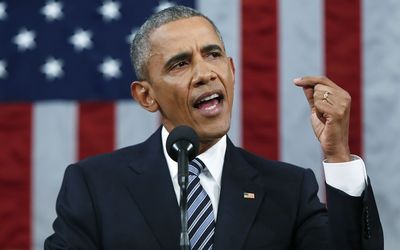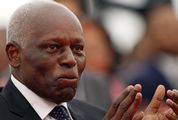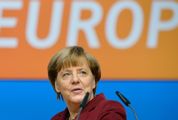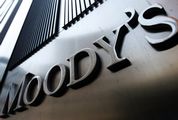Obama to visit Britain to make pro-EU case
by Agency Staff,
2016-03-13 15:32:06.0
London — US President Barack Obama will head to Britain next month and make a case for the UK to stay in the European Union (EU), a British newspaper reported Sunday.
The visit will take place towards the end of April, around two months before the June 23 referendum in which Britain will decide whether to leave or stay in the 28-country bloc, The Independent said.
A spokesman for Prime Minister David Cameron’s Downing Street office refused to comment on the report, calling it "speculation".
Mr Obama is heading to Germany in late April to talk trade with Chancellor Angela Merkel and promote US exports at the Hannover fair, said to be the world’s largest for industrial technology, which takes place April 25 and 29.
In February, Mr Obama spoke with Prime Minister Cameron by phone and "reaffirmed continued US support for a strong United Kingdom in a strong European Union," according to the White House.
Washington has long backed Britain playing a central role in the world’s largest economic bloc, warning the "special relationship" with the UK could be at risk if Britain were to leave.
Leave.EU, one of the campaign groups calling for Britain to pull out of the EU, blasted the reported plans for intervention by Mr Obama.
"People in this country have had enough of American presidents dictating our foreign policy to us," said the campaign’s spokesman Jack Montgomery.
"Barack Obama wouldn’t dream of signing up to a Pan-American political union, accepting free movement with Mexico and empowering an unelected commission in Brasilia to overturn US laws and dictate US trade policy, so how can he justify telling the UK to accept the same situation in Europe?" Prime Minister Cameron favours keeping Britain in the EU, following a renegotiation of the UK’s relations with Brussels.
Opinion polls indicate that the race is finely balanced, with those who want to remain at 51% and those in favour of leaving at 49%, according to a poll of polls by the What UK Thinks research project.
AFP

Barack Obama. Picture: REUTERS/EVAN VUCCI
London — US President Barack Obama will head to Britain next month and make a case for the UK to stay in the European Union (EU), a British newspaper reported Sunday.
The visit will take place towards the end of April, around two months before the June 23 referendum in which Britain will decide whether to leave or stay in the 28-country bloc, The Independent said.
A spokesman for Prime Minister David Cameron’s Downing Street office refused to comment on the report, calling it "speculation".
Mr Obama is heading to Germany in late April to talk trade with Chancellor Angela Merkel and promote US exports at the Hannover fair, said to be the world’s largest for industrial technology, which takes place April 25 and 29.
In February, Mr Obama spoke with Prime Minister Cameron by phone and "reaffirmed continued US support for a strong United Kingdom in a strong European Union," according to the White House.
Washington has long backed Britain playing a central role in the world’s largest economic bloc, warning the "special relationship" with the UK could be at risk if Britain were to leave.
Leave.EU, one of the campaign groups calling for Britain to pull out of the EU, blasted the reported plans for intervention by Mr Obama.
"People in this country have had enough of American presidents dictating our foreign policy to us," said the campaign’s spokesman Jack Montgomery.
"Barack Obama wouldn’t dream of signing up to a Pan-American political union, accepting free movement with Mexico and empowering an unelected commission in Brasilia to overturn US laws and dictate US trade policy, so how can he justify telling the UK to accept the same situation in Europe?" Prime Minister Cameron favours keeping Britain in the EU, following a renegotiation of the UK’s relations with Brussels.
Opinion polls indicate that the race is finely balanced, with those who want to remain at 51% and those in favour of leaving at 49%, according to a poll of polls by the What UK Thinks research project.
AFP





















Change: 1.32%
Change: 1.48%
Change: 1.26%
Change: 1.26%
Change: 2.07%
Data supplied by Profile Data
Change: 0.55%
Change: 1.28%
Change: 1.32%
Change: 0.00%
Change: 1.64%
Data supplied by Profile Data
Change: 0.76%
Change: 0.80%
Change: 0.70%
Change: 1.05%
Change: 0.58%
Data supplied by Profile Data
Change: 0.43%
Change: 0.73%
Change: 1.10%
Change: -0.35%
Change: -1.58%
Data supplied by Profile Data